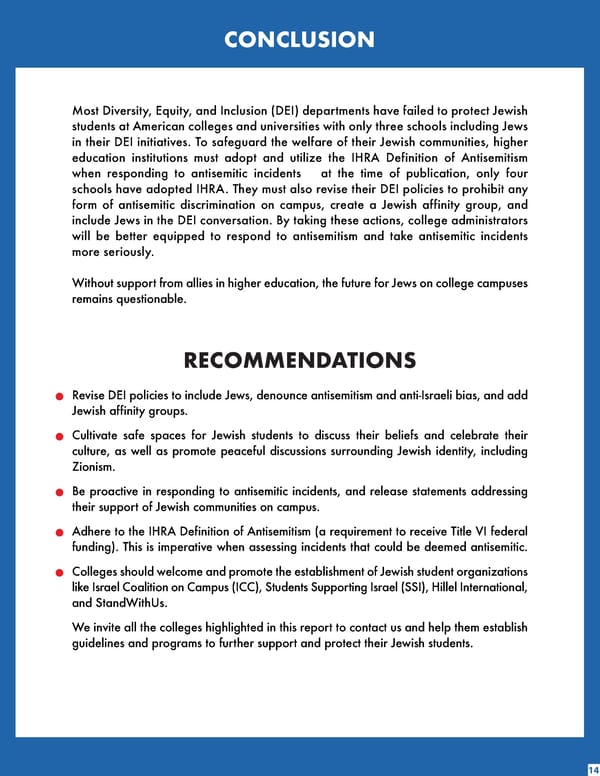CONCLUSION Most Diversity, Equity, and Inclusion (DEI) departments have failed to protect Jewish students at American colleges and universities with only three schools including Jews in their DEI initiatives. To safeguard the welfare of their Jewish communities, higher education institutions must adopt and utilize the IHRA Definition of Antisemitism when responding to antisemitic incidents – at the time of publication, only four schools have adopted IHRA. They must also revise their DEI policies to prohibit any form of antisemitic discrimination on campus, create a Jewish affinity group, and include Jews in the DEI conversation. By taking these actions, college administrators will be better equipped to respond to antisemitism and take antisemitic incidents more seriously. Without support from allies in higher education, the future for Jews on college campuses remains questionable. RECOMMENDATIONS Revise DEI policies to include Jews, denounce antisemitism and anti-Israeli bias, and add Jewish affinity groups. Cultivate safe spaces for Jewish students to discuss their beliefs and celebrate their culture, as well as promote peaceful discussions surrounding Jewish identity, including Zionism. Be proactive in responding to antisemitic incidents, and release statements addressing their support of Jewish communities on campus. Adhere to the IHRA Definition of Antisemitism (a requirement to receive Title VI federal funding). This is imperative when assessing incidents that could be deemed antisemitic. Colleges should welcome and promote the establishment of Jewish student organizations like Israel Coalition on Campus (ICC), Students Supporting Israel (SSI), Hillel International, and StandWithUs. We invite all the colleges highlighted in this report to contact us and help them establish guidelines and programs to further support and protect their Jewish students. 14
 Antisemitism on U.S. Campuses | 2022 Report Page 14 Page 16
Antisemitism on U.S. Campuses | 2022 Report Page 14 Page 16